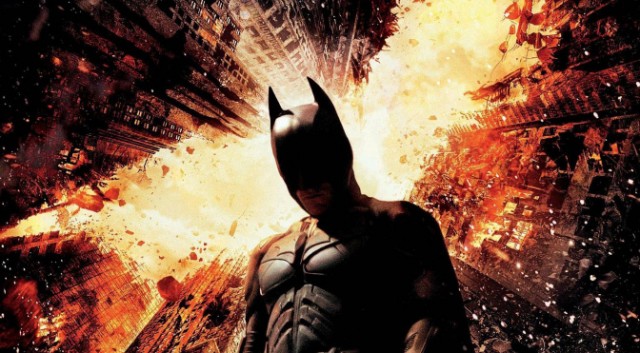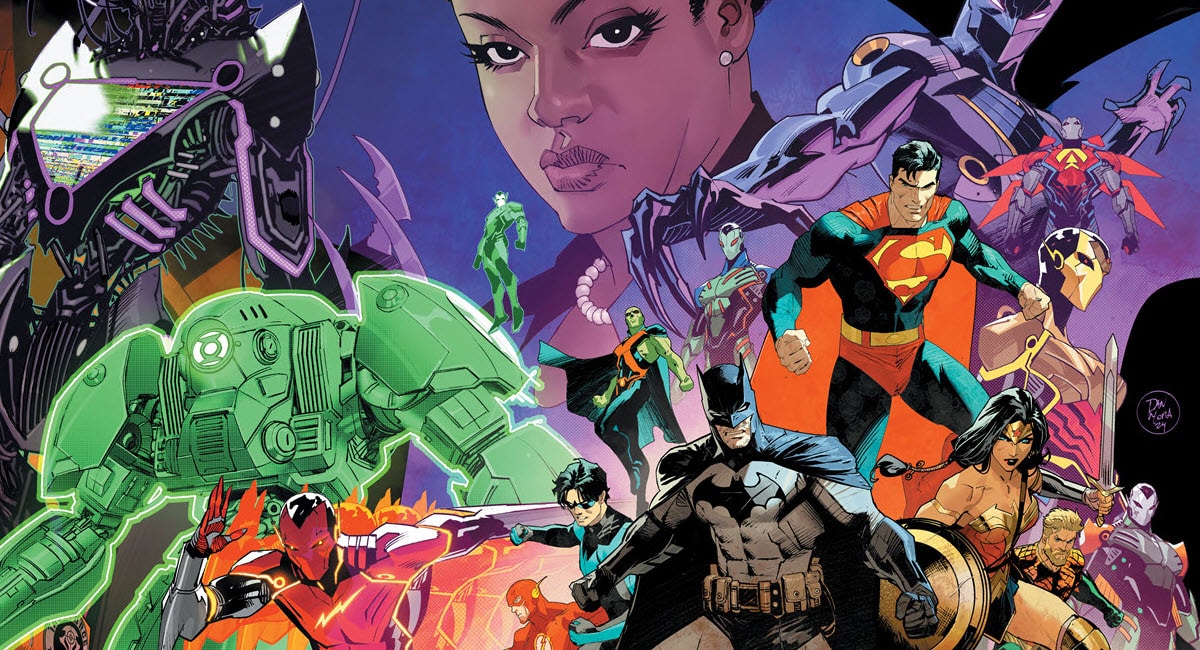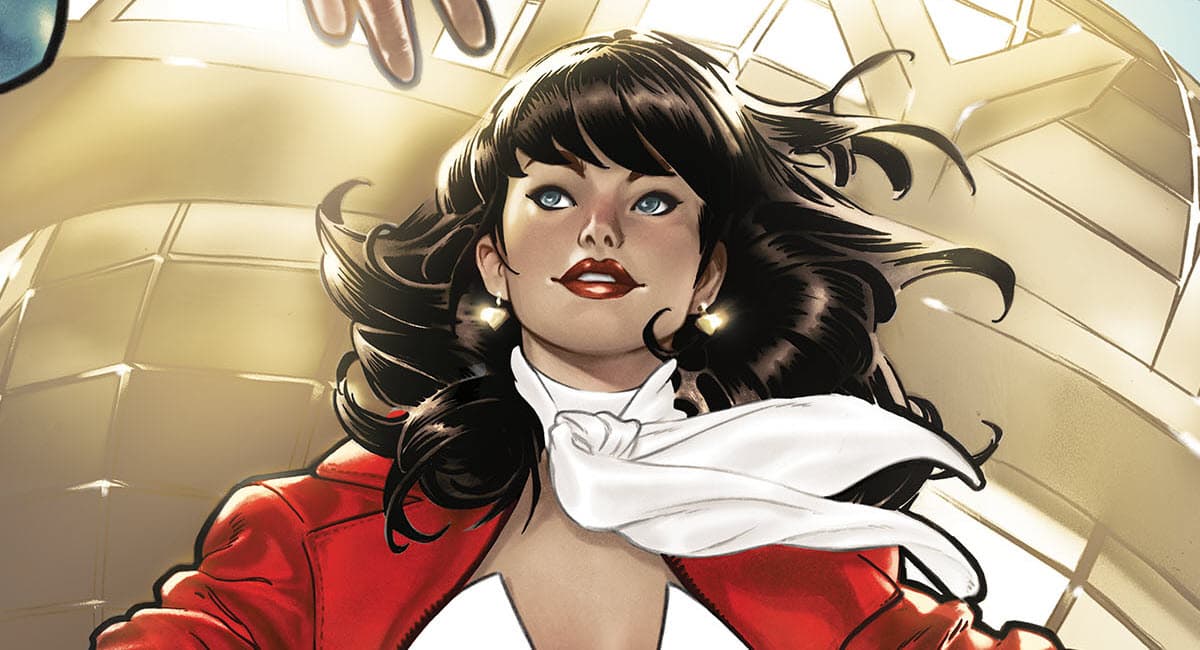
Over the last few months, comics readers have watched as the AT&T/WarnerMedia conglomerate has been busy dismantling DC Comics, a plain little publishing company that nonetheless led the way for billion-dollar IPs. First it was scuttling the priceless fan engagement at San Diego Comic Con. Then it was upending comics distribution and moving their new comic day to Tuesday. Then it was removing everyone who had anything to do with the direct market and making obvious signs about relying on digital comics, and mass market distribution.
I hear everyone asking “Why?” Why take a profitable system, profitable imprints, and a truly dedicated and engaged fanbase and just leave them by the wayside?
Well, while granting that no one has had a clear path ahead in these pandemic times, I keep hearing that it’s all part of the general mayhem of the marching orders being given by new AT&T-driven executives.
And indeed, the fallout over WarnerMedia’s shocking decision to release its entire 2021 theatrical slate simultaneously on HBO Max, reveals that the mess is even worse in other divisions, where boosting the streaming service is job #1, to the detriment of everything else.
Creatives and agencies are fuming over the WB decision — and they certainly have a right to be angry. It seems no one was told ahead of time, and there were no soothing, sweet talking attempts from CEO Jason Kilar or studio head Anne Sarnoff to try to soften the blow. In Hollywood’s ego-driven ecosystem, this is tantamount to a declaration of war.
There are several excellent deep dives on the situation. THR’s Kim Masters has a full report, including high dudgeon from Batman/Tenet director Christopher Nolan, one of the studio’s crown gems.
“Some of our industry’s biggest filmmakers and most important movie stars went to bed the night before thinking they were working for the greatest movie studio and woke up to find out they were working for the worst streaming service,” filmmaker Christopher Nolan, whose relationship with Warners dates back to Insomnia in 2002, said in a statement to The Hollywood Reporter.
Added Nolan: “Warner Bros. had an incredible machine for getting a filmmaker’s work out everywhere, both in theaters and in the home, and they are dismantling it as we speak. They don’t even understand what they’re losing. Their decision makes no economic sense, and even the most casual Wall Street investor can see the difference between disruption and dysfunction.”
It was an attempt to soothe Nolan that led to a failed theatrical release for Tenet, which is expected to lose millions and millions of dollars, so perhaps putting a smile on his face is no longer a bullet point on WB execs’ daily agendas. But he has a point. (You can read more Nolan rage at ET Online.) And Hollywood is ANGRY, Masters writes:
Surprisingly to some in the industry, sources say the idea was the brainchild of Warner Bros. COO Carolyn Blackwood who, looking at a relatively weak 2021 slate, saw an opportunity to avoid the humiliation of potentially bad grosses while currying favor with streamer-obsessed higher-ups. The instant response in Hollywood was outrage and a massive girding for battle.
“Warners has made a grave mistake,” says one top talent agent. “Never have this many people been this upset with one entity.” Like others, he had spent much of the day dealing with calls from stunned and angry clients. And that swooshing sound you hear? It’s the lawyers, stropping their blades as they prepare for battle: that Warners was self-dealing in shifting these movies to its own streamer, perhaps, or that the company acted in bad faith. Some talent reps say the decision affects not only profit participants but others who have worked on films as the move might affect residual payments. They expect and hope that the guilds will get involved. (The Writers Guild of America declined to comment.)
The feeling, as one top agent notes, is that WarnerMedia, AT&T head John Stankey, Kilar and Sarnoff “don’t understand the movie business, and they don’t understand talent relations.”
Another complicating factor: paying talent their backends for expected theatrical income. The Wonder Woman 1984 crew was given a big payout, but others may not see the same money:
WarnerMedia had to shovel tens of millions at Gal GAdot and the other key players because the company wants a third in the series. But that sets the bar high. Sources say even Suicide Squad director James Gunn, who is platform-agnostic, was not pleased when the studio followed its shocking announcement by floating a lackluster formula for compensating him and other profit participants in the film.
Another must-read is Alex Sherman’s report at CNBC: AT&T dismantles Time Warner to battle Netflix: The inside story that lays out the whole sorry story in numbers-drenched detail: the mishandling of the stellar HBO brand, the botched launch of HBO Max, and a blinkered insistence on putting the streaming cart ahead of the content horse. And also just bad people skills:
Around the same time, Stankey held a meeting with senior executives at the Time Warner Center boardroom in New York.
An outside consultant, Peter Cairo, who had spent the last few months interviewing 65 WarnerMedia executives, presented a number of problems with Time Warner’s siloed approach. Many of the senior leaders in attendance thought the presentation was doctored to support Stankey’s view that the company’s leadership was standing in the way of progress. Others viewed Cairo’s work as harsh truth. Cairo, who had a history of working with Time Warner’s leadership team, told the group HBO was particularly resistant to working with other parts of the company.
Several veteran executives, including Bernadette Aulestia, head of HBO’s global distribution and Donna Speciale, president of WarnerMedia’s ad sales, spoke up to defend Time Warner’s history of success while questioning the way AT&T was handling staff morale.
The meeting ended tersely with Stankey cutting off dialogue early, three of the people said.
Looming over everyone is AT&T’s huge debt load and struggling stock prices — but also the previous mishandling of AT&T’s acquisition of DirecTV, which Stankey also oversaw.
In the years after acquiring DirecTV, Stankey eliminated most of the company’s top leaders, changed the satellite TV strategy to digital-first, and ended marketing campaigns touting the advantages of legacy technology.
The results have not been good.
AT&T ended the third quarter with about 17 million legacy TV subscribers (both DirecTV and U-Verse), down more than 16% from a year earlier. While all pay-TV distributors have lost customers in recent years, AT&T has lost the most — about 8 million video subscribers since early 2017. For comparison, Comcast has lost about 3 million residential video customers over the same period, dropping from 22.5 million to 19.2 million.
And if you want to look at another examples of grinding old axes to chop down current disasters, old-timer media journalists Peter Bart and Mike Fleming Jr look at the whole siutuation and astutely compare the Telephone People invasion of Hollywood to an earlier failed invasion. Bart writes:
The “techie” invasion of Hollywood had long been predicted. Indeed, it had even played out a generation ago. With dire results. The first invasion occurred around 1990 when both Sony and Matsushita, the Japanese giants, noticed the giant technological change about to overtake Hollywood and asked this question: Since we’re making all the hardware, why don’t we make the software, too.
Sony bought Columbia and Matsushita bought MCA/Universal. It was all very organized and conceptually sound. The invasion of Hollywood had been accomplished. Except it didn’t work. Variety’s famous banner, printed in Japanese, declared: Buyer Beware. Matsushita’s top executives immediately clashed with those of MCA. Lew Wasserman, the dethroned king of Hollywood, let it be known that the Japanese had no idea what they were doing and he wouldn’t help them. Within six years Matsushita sold 80% of its holdings taking a $1.5 billion loss. Sony was more stalwart. They had spent hundreds of millions on expensive production deals but by 1994 announced a write-off of $2.7 billion and said they were starting over. They’re still hanging in there. But with the arrival of 2000 the handwriting was on the wall. The Japanese, Chinese and Europeans had all tried to confiscate Hollywood and had concluded they didn’t have the knack. Now the techies and bellheads are having a try.
Hollywood certainly runs on its own oddball rules, but “content is king” is still one of them. Pissing off your suppliers is not a great way to serve customers, something Kilar keeps talking about, as he’s quoted in THR: “The best way to find success in business, and certainly with the Internet, is to start with the customer. If we start our days and end our days focused on the customer, we’re going to lead the industry.”
Spitballing here, but AT&T’s view of customer needs seems to be limited to giving them a brightly lit series of moving images to watch from a sofa; the nature of those images seems to have them flummoxed. Or to paraphrase the Underpants Gnomes: Step 1 start streaming service; Step 2 ??; Step 3 PROFIT!
Meanwhile, Fleming reports, Legendary, the producer behind Denis Villenueve’s Dune and Godzilla vs Kong, is considering writing some strongly worded letters.
I’m hearing that Legendary Entertainment either has or will send legal letters to Warner Bros as soon as today, challenging the decision to put the Denis Villenueve-directed Dune into the HBO Max deal, and maybe Godzilla vs Kong as well. On the latter, Legendary reportedly had Netflix ready to pull the film from Warner Bros for around $250 million, before WarnerMedia blocked it. Sources said Legendary had no advance notice before last week’s announcement that both Dune and Godzilla vs. Kong were part of the HBO Max plan.
Theater-chain owners are similarly upset, but already battered down by lockdowns, their cries of outrage are but feeble yawps at this point, alas.
You could argue that WB didn’t have much choice in the matter of how to get their films out there, with domestic theaters closed for the foreseeable future. Still, Dune isn’t coming out until October and who the hell knows how the world will be by then.
Taking a bird’s-eye view of this whole flaming dumpster, one begins to suspect that the puzzling changes at DC Comics are, rather than an outlier, a mere synecdoche for the greater disarray at AT&T and WB. The AT&T crew doesn’t seem to have much skill at making the content to stream on all their platforms, and are doing a fine job of acting like they want to drive away the people who do. It’s the same tone-deafness of Kilar’s insistence that customers are #1 while steamrolling everything that fans like about DC. You don’t keep your customers happy by taking away the things that made them happy.
According to several reports, some observers think that AT&T will eventually sell off WarnerMedia — the costly, mercurial world of entertainment will be too big a drag on their stock price. That would be a sad outcome, but if that day comes, you won’t be able to say it came as a surprise.








“Hollywood’s ego driven ecosystem”. Boohoo
“Dune isn’t coming out until October and who the hell knows how the world will be by then.”
I was optimistic about the world being normal by this fall at one point. There’s no way that theaters are full of viewers by next fall. Optimistically, maybe half the population is vaccinated by the summer, but there is still going to be a massive public health and economic crisis playing out through next year. And don’t forget all these movies have already been delayed a year (or more in some cases). Wonder woman should have been out in 2019. Dune was slated for summer 2020. While Nolan may have his comfortable millions already earned for Tenet on the front end, AT&T/Warner/Disney/Universal have millions or more invested in a system that has 100 percent collapsed this year and won’t kick start until maybe late 2021. Scoffing at any of their moves as “disruption” is like blaming the puddle for the rain. There is a dumpster fire for sure, but that’s the global pandemic we find ourselves drowning in. Your precious theaters are going to be ghost towns unless there are direct government subsidies of the scale of 1930s era assistance programs. I’ve been once in the last half year, and I was one of 6 in the theater for Tenet on its 2nd weekend in theater.
If AT&T does eventually sell off Warner Media, I bet Apple or Netflix are ready and willing to take it off their hands.
There’s a scene in THE GRAPES OF WRATH — the rare classic Warner Bros. apparently does not own — where the whole family and an impossible number of teetering possessions are loaded onto the back of the truck in an attempt to escape the Dust Bowl and head for California.
This often has been the feeling with these big conglomerates during the pandemic: the subsidiaries are the kids on the back, trying to hang on amid all the other pieces while somebody else is doing the driving toward a theoretical promised land.
The problem with the “streaming future” is just what the Joads discovered: there’s only so many opportunities there, and others have gotten there first.
why does everyone assume life will go back to normal once a vaccine hits? This pandemic has been mentally traumatic on everyone. I never liked working at home and now i can’t see a reason to ever go back to an office. Smart restaurant people are figuring out ways to just be a kitchen that does smart delivery and cut that huge overhead. It’s going to take me a very very very long time to trust going out without a mask on or even have a desire to go to a crowded indoor space. Entire generations of children and teens growing up with the same scars. Stuff won’t snap back in place as easily and quickly as we want. The world has been forever changed. I think WB knows this and is trying to be the first to set up a future for its filmsthat doesn’t rely on theaters, and now is the best opportunity to do that. People like watching movies at home. Going to theaters has become prohibitively expensive and too much of hassle for anything that’s not a Star Wars level event.
Yes they did handle it poorly but sometimes you gotta rip off the bandaid.
Can someone please nutshell what’s going on? This just seems like a very long and arduous piece to simply say hbomax sucks. Does someone have the cliff notes?
@Kam
Time Warner Media/AT&T have basically bet the house on them becoming profitable again on HBO Max. Because HBO Max lacks the continuously new content that Netflix can offer, the Disney backing that Hulu enjoys, or the shipping benefits that drives Amazon Prime Video’s user base, AT&T figures the only way to become an instant power in streaming is by leveraging their catalogue of content (actually pretty good) with big new movies every month to ensure people keep paying $15/month for the service.
Silicon Valley is now obsessed with “continual revenue”, see Google & Apple betting the farm on monthly services revenue to offset declining ad-spending & device sales. AT&T wants to follow that business model as well, no longer content getting a chunk of occasional movie ticket sales. Especially since the pandemic likely means the end of movie theaters unless the Federal Government provides them a relief package that will tide them over until late Q4 2021/2022.
TLDR, AT&T has pissed off movie theaters who understandably see this as an existential threat to their business model and Hollywood power players who want the existing model to stay in place for as long as possible (Nolan ostensibly doesn’t buy that the home experience is any good and the studios want a cut of the money).
I also suspect a part of this move by AT&T was to force the hand of Roku. Roku is the dominant streaming platform in North America, and Roku basically sells devices/software at a loss in order to make money by capturing advertising dollars on their platform. HBO Max has been noticeably absent from Roku since it launched, leading to them missing out on the largest subscriber base available to them. AT&T likely wants to force Roku to give them a “Disney” deal, where Roku makes considerably less advertising revenue off Max so AT&T can keep that money, by forcing Roku to answer to angry customers who can’t stream WW 1984 on Christmas Day.
I know they’ve screwed up the cable / app relationship badly enough that my parents, who are in their 70’s and have had HBO for 40 years, are cancelling the channel to buy the app.
Seriously, my dad spent hours online trying to figure out if he got one with the other or if there was some way to package them together for a small fee. So he just gave up and cut the cord to see these 2020 WB movies.
And if they hate the app and stop using it, HBO might just lose those customers.
This is a very bad sign.
The existential threat to movie theaters is coronavirus! Warner Bros. could opt to not release another movie for 12 months. I’m sure that would be just as ruinous to the theater industry. At least by releasing movies through streaming AND in theaters, they 1) provide something for theaters and the brave moviegoers and 2) keep up some sort of revenue to pay the production companies and crews that depend on regular movie releases! I’m hoping and praying for the pandemic to end tomorrow as well, but WB or Disney sitting out of the movie market for 12 months while Netflix pumps and endless stream of movies??? That’s crazy. I love seeing movies in theaters as much as anyone, but my burning desire for normalcy isn’t putting a penny in their coffers if the theaters aren’t open. What they need is an industry-specific subsidy from the government until movie doing is medically approved. That’s where your anger needs to be directed.
“Never have this many people been this upset with one entity.”
Wat.
But I agree with Joe above. I think as painful as it is to multimillionaire “arteests,” simultaneous release is the way forward.
@Nick
Generally agreed. I think the question becomes how much do we value movie theaters? If we provide a relief package to movie theaters, what happens if when the pandemic is under control people just don’t go because the habit is broken for many? “Going to the movies” was already becoming something that fewer and fewer people did fewer and fewer times a year. Will people come back? I’m not so sure. 4K tvs are increasingly affordable and a $50 HDMI dongle will play out a movie with the latest & greatest picture codecs.
While I generally support providing some economic relief to theaters, I do worry that in the end it will all be for naught as consumers habits have been changed as a result of the pandemic. I’m confident people will rush back into bars & restaurants for the social atmosphere and the food, but will they be willing to fork over $50-$100 for the movie theatre experience? I increasingly have my doubts.
Rupert Murdoch has his hands in Warner. That’s why Depp lost his job, for standing up to Murdoch who owns the Sun. Warner movies has been steadily going deeper indebt with bad decisions. Murdochs daughter works for them so I’m sure he has an inside card to get him first dibs. Especially since he helped bail them out with a hefty loan on a bad music streaming deal a few years ago.
Movies going straight to streaming is a great idea. The only reason thst people in Hollywood are pissed off is because they won’t get the big money they usually get when movies hit theaters. Once again as usual those complain only care about themselves and how much money they’re missing out on. Who cares about the little people that made these people in Hollywood rich. We as the people and audience made Hollywood and those greedy idiots rich. Christopher Nolan is a great director but has no clue what the audience wants or needs. He only cares about his pockets like everyone in Holland does. So I say good for Warner Brothers doing the smart right thing during a pandemic.
Mike, that’s definitely a risk. Personally, a night at the movies is still good for a date night or friends outing. We’ll be back in theaters when they are ready again, but it’s an open question as to how many people will return.
So I’m supposed to feel sympathy for people earning millions of dollars a year? I’m supposed to think they deserve it more then the mother that wakes up nightly to tend to their child, or the hard worker trying to support their family? Give me a script and an acting coach, pay me a single solitary million dollars, I’m not greedy.
We don’t know when theaters will reopen, Warners is hemeraging money by pushing back projects and trying to keep fans engaged. Their best bet is HBO max bringing in subscription fees. Its like the monthly movie model theaters tried years ago, if enough subscribe, it would pay the bills.
Things have changed, people won’t file into a movie theater comfortably for years still, work will still be done at home, and children lost a years worth of social development.
It will not go poof back to normal, be happy that Warner will keep your properties relevant. I sure as hell am cooled off after a year of no marvel movies. I still plan to watch Black Widow, just not as excited as I once was and might wait for the blu ray.
BTW if you ever go to a drive in that has its food area closed. Keep your windows closed, or find something to cover them. The cockroaches have nothing to eat, and they want to come home with you.
What strikes me is how no one reporting the story notes AT&T’s crushing debt thanks to buying Warner. I assure all that the projections used to justify the purchase and debt load did not address the possibility of a historic, once a century global pandemic. Normally, then, AT&T would be desperate to get enough cash to service the debt. Say, by releasing movies sooner to a non-so-successful streamer than to wait for more a little later when theaters reopen. Not saying I’m right, although the pieces fit, but that the issue maybe should be addressed in honest reporting. (Another tell is that Disney, not suffering from an excessive debt load yet with their own problems is doing the opposite, in essence.)
Comments are closed.